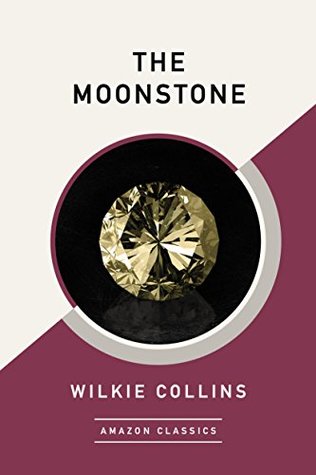More on this book
Community
Kindle Notes & Highlights
“Now I saw, though too late, the Folly of beginning a Work before we count the Cost, and before we judge rightly of our own Strength to go through with it.”
I have sat helpless (in spite of my abilities) ever since; seeing what Robinson Crusoe saw, as quoted above—namely, the folly of beginning a work before we count the cost, and before we judge rightly of our own strength to go through with it.
He was, out of all sight (as I remember him), the nicest boy that ever spun a top or broke a window. Miss Rachel, who was present, and to whom I made that remark, observed, in return, that she remembered him as the most atrocious tyrant that ever tortured a doll, and the hardest driver of an exhausted little girl in string harness that England could produce. “I burn with indignation, and I ache with fatigue,” was the way Miss Rachel summed it up, “when I think of Franklin Blake.”
Persons and Things do turn up so vexatiously in this life, and will in a manner insist on being noticed.
You have heard of beautiful young ladies falling in love at first sight, and have thought it natural enough. But a housemaid out of a reformatory, with a plain face and a deformed shoulder, falling in love, at first sight, with a gentleman who comes on a visit to her mistress’s house, match me that, in the way of an absurdity, out of any story-book in Christendom, if you can!
But it is a maxim of mine that men (being superior creatures) are bound to improve women—if they can. When a woman wants me to do anything (my daughter, or not, it doesn’t matter), I always insist on knowing why. The oftener you make them rummage their own minds for a reason, the more manageable you will find them in all the relations of life. It isn’t their fault (poor wretches!) that they act first and think afterwards; it’s the fault of the fools who humour them.
People in high life have all the luxuries to themselves—among others, the luxury of indulging their feelings. People in low life have no such privilege.
I am an average good Christian, when you don’t push my Christianity too far.
Cultivate a superiority to reason, and see how you pare the claws of all the sensible people when they try to scratch you for your own good!
You choose a cigar, you try it, and it disappoints you. What do you do upon that? You throw it away and try another. Now observe the application! You choose a woman, you try her, and she breaks your heart. Fool! take a lesson from your cigar-case. Throw her away, and try another!”
“In the time of the late Mrs. Betteredge,” I said, “I felt pretty often inclined to try your philosophy, Mr. Franklin. But the law insists on your smoking your cigar, sir, when you have once chosen it.”
“Where’s this gentleman that I mustn’t speak of, except with respect? Ha, Mr. Betteredge, the day is not far off when the poor will rise against the rich. I pray Heaven they may begin with him. I pray Heaven they may begin with him.”
“Will you favour me by accepting a tract?” She looked at the title. “Is it written by a man or a woman, Miss? If it’s written by a woman, I had rather not read it on that account. If it’s written by a man, I beg to inform him that he knows nothing about it.”
and an element of worldly disturbance entered the room, in the person of Miss Verinder.
“Considering that Mr. Luker is only a chance acquaintance of yours, you take up his cause, Godfrey, rather warmly.”
But it was impossible (with my religious views) to rouse myself in a few days only from the shock which this death had caused me.
He stopped, and looked round at my corner. I sat there quite immovable, with my tracts at my elbow and with Miss Jane Ann Stamper on my lap. “You know,” he resumed, turning back again to Rachel, “that it was part of your poor mother’s fine nature always to see the best of the people about her, and never the worst.
“Come away, for God’s sake, before that woman can say any more! Oh, think of my poor mother’s harmless, useful, beautiful life! You were at the funeral, Mr. Bruff; you saw how everybody loved her; you saw the poor helpless people crying at her grave over the loss of their best friend. And that wretch stands there, and tries to make me doubt that my mother, who was an angel on earth, is an angel in heaven now!
Miss Verinder had her own private reason for breaking her marriage engagement—and I was at the bottom of it. Mr. Godfrey Ablewhite had his own private reason for withdrawing all claim to the hand of his charming cousin—and I discovered what it was.
“You can’t brave public opinion,” I said, “at the command of private feeling.”
There have been sad changes, since you went away. The house is shut up, and the servants are gone.
“There has been an event, sir, in the police-circles, since you went away. The great Cuff has retired from business. He has got a little cottage at Dorking; and he’s up to his eyes in the growing of roses. I have it in his own handwriting, Mr. Franklin. He has grown the white moss rose, without budding it on the dog-rose first. And Mr. Begbie the gardener is to go to Dorking, and own that the Sergeant has beaten him at last.”


